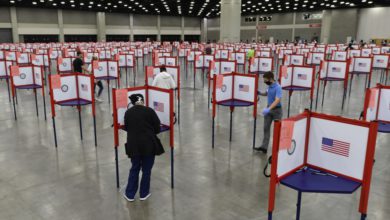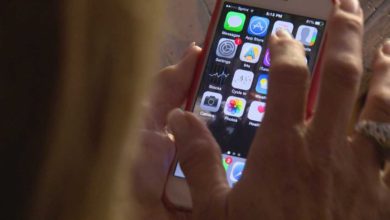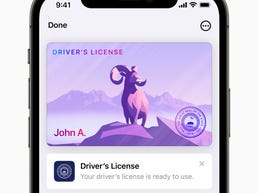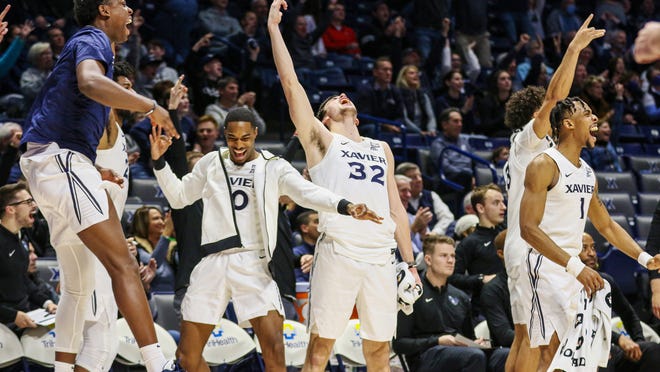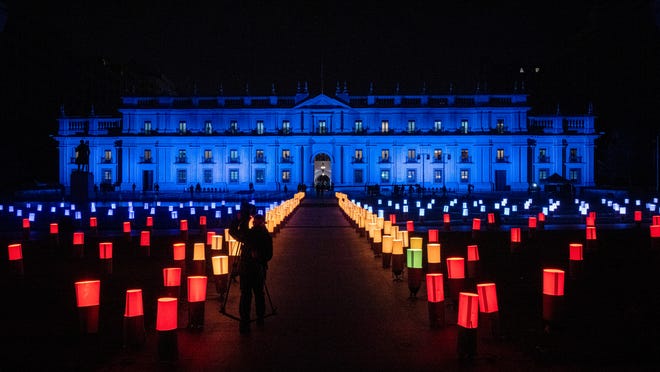
Pediatric hospitals are filling with coronavirus patients as schools start opening amid the latest surge in infections, this one driven by the highly contagious delta variant.
Children's hospitals in Tennessee will be completely full by the end of this week, the state health department projected. The 94 children admitted to Florida's Wolfson Children's Hospital in July was more than four times the number admitted in June.
Schools are allowing students, maskless or with masks, back into the classroom. And some schools are closing as soon they're opening their doors. A district in Mississippi reported 114 COVID-19 positive students for the week of July 24-30 and 608 students under quarantine, pushing two high schools and a middle school to virtual learning until Aug. 16.
Children in one pre-K classroom in Georgia were sent home Thursday following possible contact with a person in school who had tested positive. Another school in Tennessee delayed the school year start date by one week because of a number of COVID-19 cases among staff.
The American Academy of Pediatrics sent a letter to acting FDA Commissioner Janet Woodcock last week, urging the agency to continue working aggressively toward authorizing vaccines for children under 12.
"Simply stated, the delta variant has created a new and pressing risk to children and adolescents across this country, as it has also done for unvaccinated adults," the letter says.
Also in the news:
►Gov. Henry McMaster on Monday urged South Carolinians to get vaccinated but repeated parents will decide whether students wear masks in class. Less than half the state's residents are fully vaccinated.
►Nigeria postponed the Tuesday rollout of its second batch of COVID-19 vaccine because of “unforeseen circumstances." Less than 2% of the country’s 200 million citizens have been vaccinated.
►Gov. Tony Evers announced Monday he has given Wisconsin hotels $70 million in federal coronavirus relief dollars. Grants of up to $2 million went out to almost 900 lodging businesses to help offset pandemic-related losses, he said.
►France is now requiring people to show a QR code proving they have a special virus pass before they enter restaurants and cafes or travel across the country. The measure is part of a government plan to encourage vaccination.
►With new COVID-19 cases surging in Louisiana, the New Orleans Jazz & Heritage Festival won’t be returning this year, organizers said Sunday.
📈 Today's numbers: The U.S. has had more than 35.7 million confirmed COVID-19 cases and 616,000 deaths, according to Johns Hopkins University data. The global totals: More than 202.9 million cases and 4.2 million deaths. More than 166 million Americans – 50% of the population – have been fully vaccinated, according to the CDC.
📘 What we're reading: Public health experts told USA TODAY that shaming and blaming the unvaccinated could backfire – entrenching their decision rather than persuading them to get the shots. Read the full story.
Keep refreshing this page for the latest news. Want more? Sign up for USA TODAY's Coronavirus Watch newsletter to receive updates directly to your inbox and join our Facebook group.
Pentagon to mandate vaccination for service members
The Pentagon will require members of the U.S. military to get the COVID-19 vaccine by Sept. 15, according to a memo obtained by The Associated Press.
“I will seek the president’s approval to make the vaccines mandatory no later than mid-September, or immediately" when a vaccine wins full approval from the Food and Drug Administration, Defense Secretary Lloyd Austin says in the memo to troops warning them to prepare for the requirement. The FDA thus far has issued only emergency use authorization for the vaccines. The memo is expected to go out Monday.
The Navy said that more than 74% of all active duty and reserve sailors have been vaccinated with at least one shot. The Air Force said that more than 65% of its active duty and 60% reserve forces are at least partially vaccinated. The number for the Army – by far the largest service – appears to be closer to 50%.
“I will not hesitate to act sooner or recommend a different course to the President if l feel the need to do so.”
Hospitals filling up, ICU numbers more than triple in four weeks
Surging coronavirus cases are filling beds at U.S. hospitals, which again are admitting more than 100,000 likely COVID patients each week, a USA TODAY analysis of U.S. Health and Human Services data shows. Hospitals reported 66,390 likely COVID-19 patients in beds Saturday, up from 20,184 just four weeks earlier.
Far more people sickened by coronavirus were in intensive care: About 15,900, up from about 4,900 four weeks earlier.
In Texas, the number of people hospitalized with lab-confirmed COVID-19 cases is increasing faster than at any other point since the pandemic began in early 2020, the Texas Press Association reported, citing state statistics.
– Mike Stucka
Judge blocks Florida law banning cruises from requiring proof of vaccine
Norwegian Cruise Line Holdings Ltd. will be allowed to require passengers to present proof of COVID-19 vaccination when they board cruises departing from Florida – at least for now. Late Sunday, the company, parent to Norwegian Cruise Line, Regent Seven Seas Cruises and Oceania Cruises, was granted a preliminary injunction by U.S. District Judge Kathleen Williams, temporarily blocking Florida's law that bans cruise companies from asking for proof of a COVID-19 vaccine in order to board.
"This order will now allow the company to operate in the safest way possible with 100% vaccination of all guests and crew when sailing from Florida ports," the cruise line said in a press release.
– Morgan Hines
Canada opens its border to vaccinated Americans
Canada threw open its border to vaccinated U.S. citizens on Monday after more than a year of only allowing essential travel.
Detroit’s ports to Canada were not overwhelmed early Monday. Wait times for the Ambassador Bridge and the Detroit-Windsor tunnel hovered around 10 minutes. Americans must test negative for COVID-19 within three days to win passage across one of the world’s busiest land borders. Travelers also must fill out a detailed application on the "arriveCAN" app before crossing.
The U.S. has extended its closure to all Canadians making nonessential trips until at least Aug. 21. The same date applies to the Mexican border.
The moment couldn't arrive any sooner for loved ones who've been apart the entire pandemic. Asawari Kaur of Indiana, along with her family, huddled together at Detroit’s duty-free shop minutes before midnight. Some of Kaur’s family hadn’t seen her brother, who got married in April, in almost two years.
“We were all so eagerly waiting for that day,” Kaur said.
– Eve Chen and Minnah Arshad
Across the US, memorials to victims of COVID-19 pandemic taking shape
Temporary memorials have sprung up across the U.S. – 250,000 white flags at the former Washington Football Team Stadium in the nation’s capital, a garden of hand-sculpted flowers in Florida, strings of origami cranes in Los Angeles. The process of creating more lasting remembrances that honor the more than 600,000 Americans who have died from the coronavirus, though, is fraught compared to past memorial drives because of politics.
Last year, a bill kickstarting a national COVID-19 memorial process died in Congress as the Trump administration sought to deemphasize the ravages of the pandemic.
Non-pandemic monuments – such as the Vietnam Veterans Memorial in Washington, D.C., the Oklahoma City National Memorial and the National Sept. 11 Memorial in New York – resulted from negotiations among diverse stakeholders willing to push through controversy to hash out common narratives, said Nancy Bristow, a history professor at the University of Puget Sound.A national COVID-19 memorial won’t be so clear-cut, she said.
“The problem and the strength of memorials is they tell the story we want to tell, and they may not have anything to do with learning from the past or even with remembering the complexities of what we’ve been through,” Bristow said. “Commemoration and memorializing is not about nuance.”
Doctor looked 'as far as Cincinnati' for care for young COVID patient
A Tennessee doctor struggled to find a nearby hospital with specialized care to help a young patient with coronavirus – a candidate for an intensive therapy given to COVID-19 patients when a ventilator isn't enough.
A machine was available, but the staff needed to deliver the therapy wasn't. Dr. Jason Martin, a critical care doctor at Sumner Regional Medical Center in Gallatin, Tennessee, said he had to look “as far as Cincinnati” to find a hospital with both the equipment and staffing to help his patient.
"What we're feeling as practitioners is that there is no bed availability, and that manifests itself in a number of ways," Martin said. "In a community hospital like the ones I work in, in Sumner County, there are some cases where patients need specialized attention and they need to go to a bigger hospital ... when that gets impaired because of COVID eating up the extra capacity, then those patients suffer."
The delta variant is "everywhere," putting additional pressure on short-staffed hospitals, Tennessee Health Commissioner Lisa Piercey said on Aug. 2. Hospitalization levels are approaching those reached in February when the state experienced another surge in COVID-19 cases.
On Aug. 7, 14% of Tennessee hospitals' floor beds were available, according to state data, and 10% of ICU beds were available.
– Cassandra Stephenson, Nashville Tennessean
Mom urges students to wear masks after 5-year-old child contracts COVID
Heidi Kim, an Arizona mom of two, learned that within two weeks of sending her kids to school, her 5-year-old daughter tested positive for COVID-19. In the previous school year, the two were home-schooled to protect family members from contracting the virus. Kim and her husband were hesitant to send their children to in-person school, she told “Good Morning America.”
"I was really nervous about sending them back there, but I had hoped maybe in September they would be eligible for the vaccine," Kim said. "I had hoped it would just be the month and a few extra weeks depending when it comes."
On June 30, Gov. Goud Ducey signed a law that prohibited mask mandates in Arizona schools, an action being done across seven other states to limit the enforcement of masks in educational settings.
Kim said that even though masks were encouraged, only two other kindergartners wore masks to school.
"It's incredibly frustrating because I think schools should absolutely be open. I don't think that people should have to put their life on hold for a year and a half," Kim said. "When we look at what public health is telling us, you look at the American Academy of Pediatrics, or the CDC, they're all saying schools should be open. But also people who aren't vaccinated should wear a mask."
– Steven Vargas
Contributing: The Associated Press
Source link


